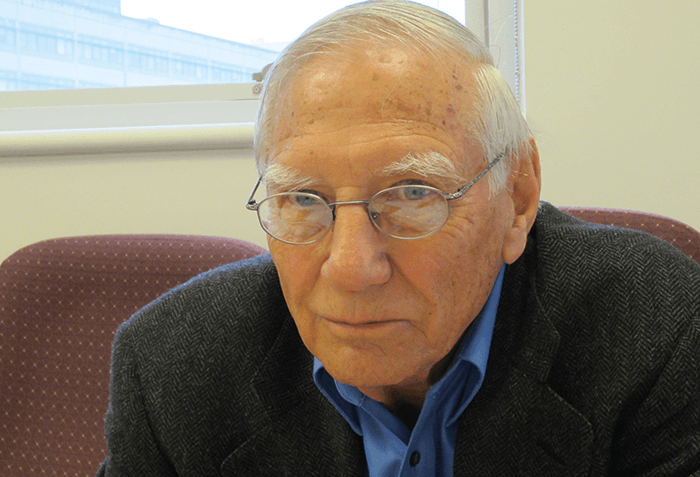
How McNair’s classic book, Basic GC, came about
“When I was working for F&M Scientific, I gave a lecture at the University of Athens. At the time, most Europeans knew very little about GC – except the English and Dutch! The university asked me to come back for another day, but I ended up coming back four days in a row. Afterwards, they asked me to write up my notes and I sent about 16 pages and five figures – the starting point for the book. When I had more time, I decided to write the first formal edition. I wrote for people whose first language was not English, using a very simple, direct style. I just wanted to familiarize people with GC – to help them understand and appreciate it. The book sold more than 130,000 copies over 25 years, and was translated into nine different languages.”
Views on cooperation between academia and industry
“I learned from Keulemans that such an interface is essential. When I retired from Virginia Tech, my GC/LC lab probably had over half a million dollars of instrumentation, donated from Hewlett Packard, PerkinElmer, Shimadzu, Restek and Phenomenex. I tell all of my students, if you help those in industry, they will help you. Most of my students had one or more summer jobs in industry, but some professors don’t want their students delaying their research by working in industry for the summer – they should stay in the lab, doing basic research! Eighty percent of PhD students in the USA go into industry, yet 90 percent of grad students are taught that they should become academics. There’s something wrong there.”
On widening student’s horizons
“If I think about all the experts I’ve worked with, including those early pioneers – they were willing to share their ideas with everybody. I was just fascinated by these people and knew they were smarter than me. They turned me “on” to GC. I only hope that in some way I’ve been able to pass that enthusiasm on to my colleagues and grad students. One of my former students was asked if he had learned a lot about chemistry from me. He said, ‘Chemistry? That came easily. We learnt how to drink beer, how to travel around the world, how to stay up late entertaining people and still get up the next day to give a lecture at 8am. We learnt from Professor McNair how to live and enjoy life!’”
Read the full article, first published in November 2016.
The Harold McNair School of Life
Past students, colleagues and friends discuss the Harold McNair school of teaching, mentorship, networking, communication, and life.
Vince Remcho: “Harold had a gift for making people feel valued, important, and capable. He genuinely loved others and was remarkably selfless. One example sticks in my mind: in the early 1990s, there was a great deal of unrest in the middle east, and Harold went out of his way to help a visiting professor from Egypt. Harold and his wife Marijke found the scientist and his family a home in Blacksburg, connected them with the local community, and got the scientist set up to be productive in the lab. What an example to set for our research group.”
Kevin Schug: “I learned a lot about teaching from Harold. There wasn’t anything “flashy.” He would communicate the essential aspects of a technique, often using his hands to effectively mimic the actions needed to perform the technique. His slides contained essential prompts, but were otherwise kept quite simple. He did not get bogged down in details, unless you asked him to go there with your questions. Even then, he was careful not to muddy the waters for others with his answers. He would often include examples and stories from his life’s experiences, which were invariably enthralling. I think that was his real gift. I miss those stories – even the ones I heard multiple times!”
Chris Palmer: “Harold understood that, at its core, scientific research is a human endeavor; that progress is built on scientific understanding and prior results, but also on strong interpersonal relationships with a foundation of mutual respect and understanding. He built an international network of true friends and collaborators by showing great interest and respect for the scientific and personal interests of others, regardless of nationality or background.”




